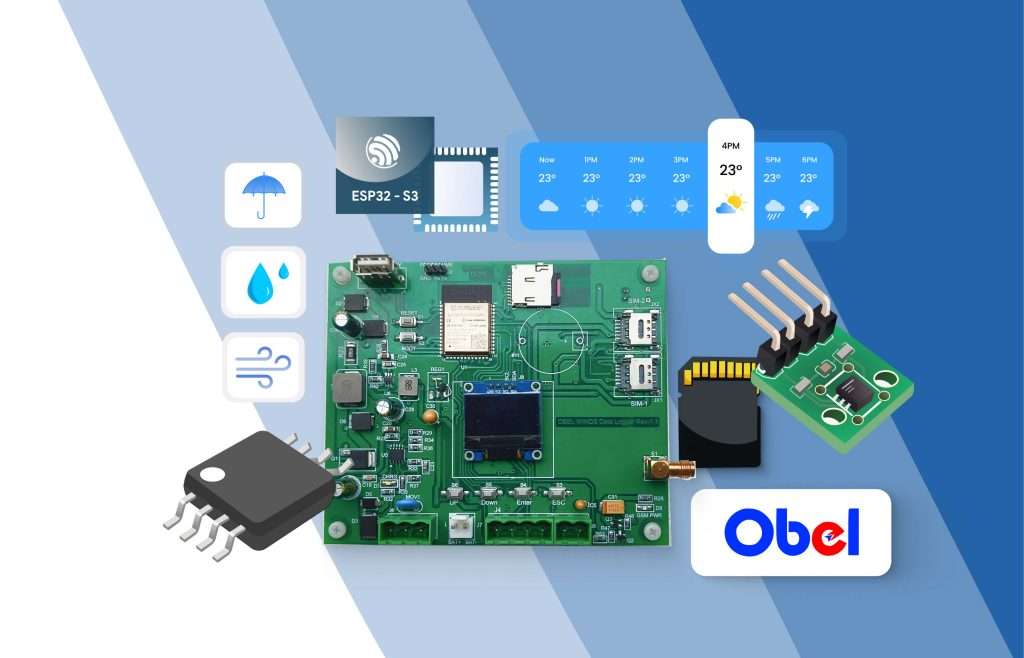Protocols - ADC
Protocols
ADC
Capture precise analog signals in IoT applications with ADC solutions, transforming real-world data into actionable insights.
What is ADC?
An Analog-to-Digital Converter (ADC) is a critical component in IoT systems that transforms real-world, analog signals into digital data. In an IoT-based environment, many sensors generate analog signals, such as temperature, humidity, or light intensity. The ADC converts these continuous analog signals into discrete digital values that microcontrollers can process, enabling the device to make informed decisions and take actions based on the sensor data.
By converting analog data into a digital format, ADCs facilitate precise and real-time measurements, allowing for the integration of a wide variety of sensors into IoT applications.
Applications:
Environmental Monitoring
ADCs are widely used in systems that measure environmental factors such as temperature, humidity, air quality, and weather conditions. These systems provide real-time insights into environmental changes, which are critical for decision-making.
Data Logging
ADCs enable the efficient collection and recording of data in applications like agricultural monitoring, energy management, and industrial systems. They help capture real-time data for long-term analysis.
IoT Systems
In IoT devices, ADCs are integral to sensor-based applications. Whether in wearables, healthcare, or smart homes, ADCs provide the vital bridge between analog sensor signals and digital systems, ensuring smooth and accurate data processing.
Automation and Control Systems
In industrial automation, ADCs facilitate the conversion of sensor data into actionable control signals, allowing systems to operate efficiently and safely.
Features
High Resolution
ADCs offer varying levels of resolution (e.g., 8-bit, 10-bit, 12-bit, etc.), ensuring that analog signals are converted with high accuracy, allowing for precise measurements in critical applications.
Fast Sampling Rates
ADCs can sample data at high speeds, ensuring real-time processing of rapidly changing analog signals. This feature is essential for applications that require continuous or fast data updates.
Wide Sensor Compatibility
ADCs can interface with a broad range of sensors, making them versatile in collecting data from different environmental, industrial, and health monitoring sensors.
Low Power Consumption
Many ADCs are designed to be energy-efficient, making them ideal for battery-powered IoT applications where low power consumption is crucial for extending device life.
Signal Conditioning
ADCs often come with built-in features like amplification and filtering, which help condition the analog signal before conversion, ensuring the integrity of the data.
Usecases
In our Weather Monitoring and Data Logging Device, ADC technology plays a pivotal role in collecting and processing data from multiple sensors to track real-time weather conditions. The device integrates several environmental sensors, including the SHT25 temperature sensor, rain pulse sensor, and wind sonic peripheral. These sensors generate analog signals that are converted by the ADC into digital data that can be processed by the system.
The digital data is processed by the ESP32-S3 microcontroller. The ADC ensures accurate conversion of environmental signals into actionable digital data, which is then logged onto the SD card for future reference. The system captures and stores weather information, such as temperature, humidity, wind speed, and rainfall levels. The real-time weather data is displayed on an LCD screen and can be accessed remotely via the GSM module for location-based alerts. The RTC chip ensures accurate time-stamping of data, allowing users to monitor trends over time and receive timely weather alerts.
